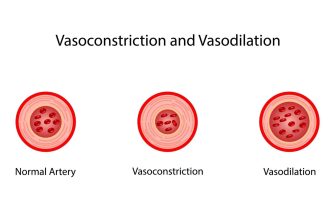Prioritize your health and safety by using licensed online pharmacies only. Verify their legitimacy through independent verification sites like LegitScript or PharmacyChecker. This crucial step protects you from counterfeit medications and potential health risks.
Check for secure website features – look for “https” in the URL and a padlock icon in your browser’s address bar. These indicate encrypted connections safeguarding your personal and financial information during transactions. Never submit payment details to unsecured sites.
Read customer reviews and testimonials from verified buyers. Positive feedback on delivery times, customer service, and medication authenticity builds confidence in the legitimacy of a given online pharmacy. However, be wary of overwhelmingly positive reviews, which may indicate fabricated testimonials.
Opt for pharmacies with a physical address and contact information readily available. A genuine pharmacy will be transparent about its location and business details. Avoid dealing with anonymous or untraceable vendors. Remember, a reliable pharmacy will prioritize your safety and wellbeing above all else.
- Buy Safe Online Viagra
- Identifying Reputable Online Pharmacies
- Security Measures
- Pharmacist Availability
- Understanding Viagra’s Risks and Side Effects
- Common Side Effects
- Serious Side Effects
- Interactions with Other Medications
- Pre-existing Conditions
- Alcohol and Viagra
- Alternatives
- Protecting Your Personal and Financial Information Online
- Secure Your Devices
- Shop Smart
- Be Mindful of Public Wi-Fi
- Monitor Your Accounts
Buy Safe Online Viagra
Prioritize licensed pharmacies. Check for verification seals from organizations like LegitScript or PharmacyChecker.com. These seals indicate the pharmacy adheres to strict safety and quality standards.
Scrutinize the website. Look for secure connections (https) and a physical address. Avoid sites with poor grammar, missing contact information, or excessive claims.
- Verify doctor credentials. Ensure the physician offering consultations is licensed and board-certified. Look for details about their experience and qualifications.
- Read reviews. Check independent review sites like Trustpilot or Yelp for feedback from other customers. Pay attention to both positive and negative reviews.
- Understand privacy policies. Confirm the site protects your personal and medical information with robust security measures.
Compare prices cautiously. The cheapest option isn’t always the safest. A significantly lower price might indicate counterfeit medication.
- Use a credit card. Credit card companies offer better fraud protection than debit cards or other payment methods.
- Contact customer service. If you have questions, test the responsiveness of their customer support channels (phone, email, chat).
- Report suspicious activity. If you encounter a questionable website or experience any issues, report it to the appropriate authorities.
Remember, your health is paramount. Thoroughly research any online pharmacy before making a purchase. If unsure, consult your doctor for guidance.
Identifying Reputable Online Pharmacies
Check for a valid license and registration. Legitimate online pharmacies display their license information prominently. Verify this information through the relevant regulatory bodies in their country of operation. Look for a physical address and contact information. Avoid pharmacies with only a PO Box or vague contact details. A legitimate business will have transparent contact information, including a phone number.
Security Measures
Secure websites use HTTPS, indicated by a padlock icon in the address bar. Look for this symbol before entering any personal or payment information. Reputable pharmacies utilize secure payment gateways to protect your financial data. Check for privacy policies that clearly describe how they handle your personal information. Avoid sites lacking a detailed privacy policy.
Pharmacist Availability
Reliable online pharmacies provide access to licensed pharmacists. Look for opportunities to consult with a pharmacist about your medication. This allows for professional advice and ensures safe medication use. Absence of pharmacist interaction should raise concerns.
Understanding Viagra’s Risks and Side Effects
Consult your doctor before using Viagra. This is crucial for assessing your suitability and managing potential risks.
Common Side Effects
Viagra commonly causes headaches, facial flushing, and nasal congestion. These are usually mild and temporary. You might also experience indigestion, visual disturbances (blurred vision, sensitivity to light), or dizziness. If these effects persist or worsen, seek medical attention immediately.
Serious Side Effects
Seek immediate medical help if you experience chest pain, irregular heartbeat, or sudden vision loss. These are rare but serious side effects requiring prompt medical intervention. Prolonged erection (priapism) is another serious complication, needing immediate attention to avoid permanent damage.
Interactions with Other Medications
Viagra can interact negatively with certain medications, including nitrates (used to treat chest pain). Never combine Viagra with nitrates. Inform your doctor about all medications, supplements, and herbal remedies you are taking before starting Viagra. This prevents potentially dangerous interactions.
Pre-existing Conditions
Men with heart disease, high blood pressure, stroke history, or blood cell disorders should discuss Viagra use carefully with their doctors. These conditions can increase the risk of serious side effects. Similarly, individuals with liver or kidney problems need careful monitoring.
Alcohol and Viagra
Mixing Viagra with alcohol can intensify side effects. Limit your alcohol intake when using Viagra. Excessive alcohol consumption increases the risk of side effects and can negatively impact your overall health.
Alternatives
If Viagra causes unacceptable side effects or isn’t effective, alternative treatments are available. Discuss these options with your physician.
Protecting Your Personal and Financial Information Online
Always use strong, unique passwords for every account. Consider a password manager to help you generate and securely store them. Avoid using easily guessable information like birthdays or pet names.
Secure Your Devices
Install reputable antivirus and anti-malware software on all your devices and keep it updated. Enable two-factor authentication (2FA) wherever possible – this adds an extra layer of security. Regularly update your operating systems and applications.
Shop Smart
Only buy from reputable websites with secure connections (look for “https” in the address bar and a padlock icon). Carefully review the website’s privacy policy before providing any personal information. Never click on links from suspicious emails or text messages. Use your credit card for online purchases; it offers better fraud protection than debit cards.
Be Mindful of Public Wi-Fi
Avoid accessing sensitive accounts, like your bank or online pharmacy, when using public Wi-Fi. Public networks are less secure and vulnerable to attacks. Use a Virtual Private Network (VPN) to encrypt your internet traffic if you must use public Wi-Fi.
Monitor Your Accounts
Regularly check your bank and credit card statements for any unauthorized activity. Be vigilant about phishing attempts; legitimate companies will never ask for your password or banking details via email or text.





